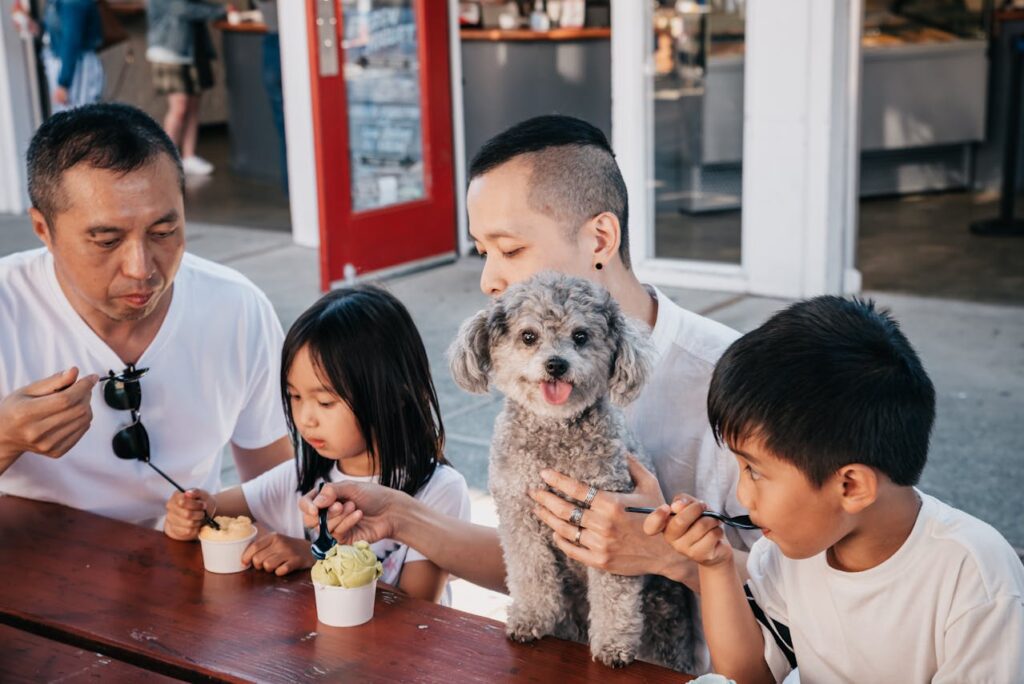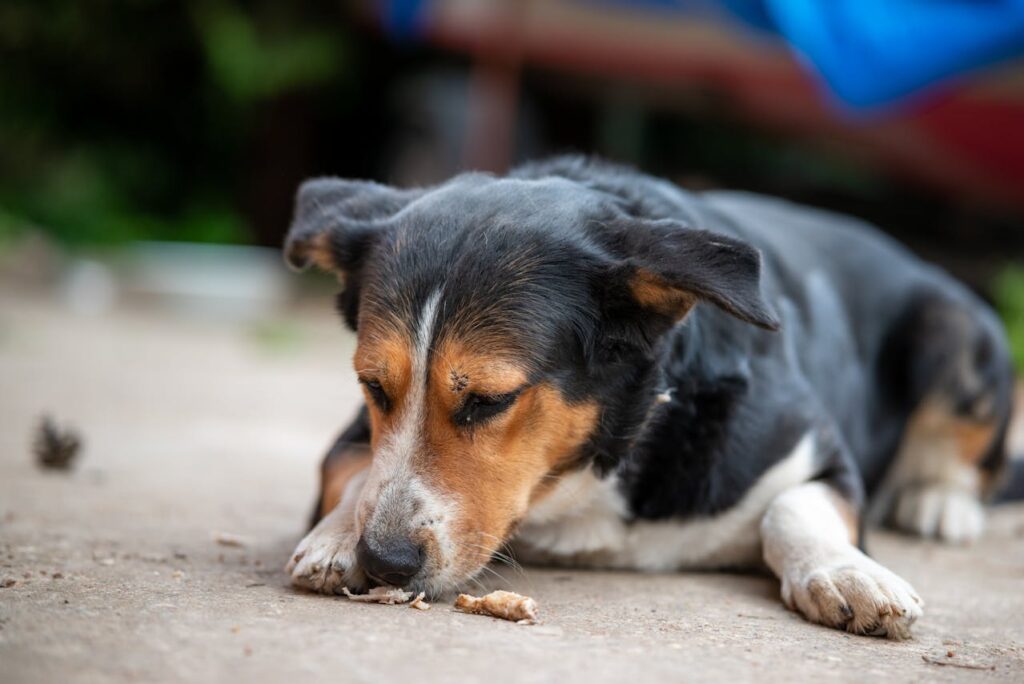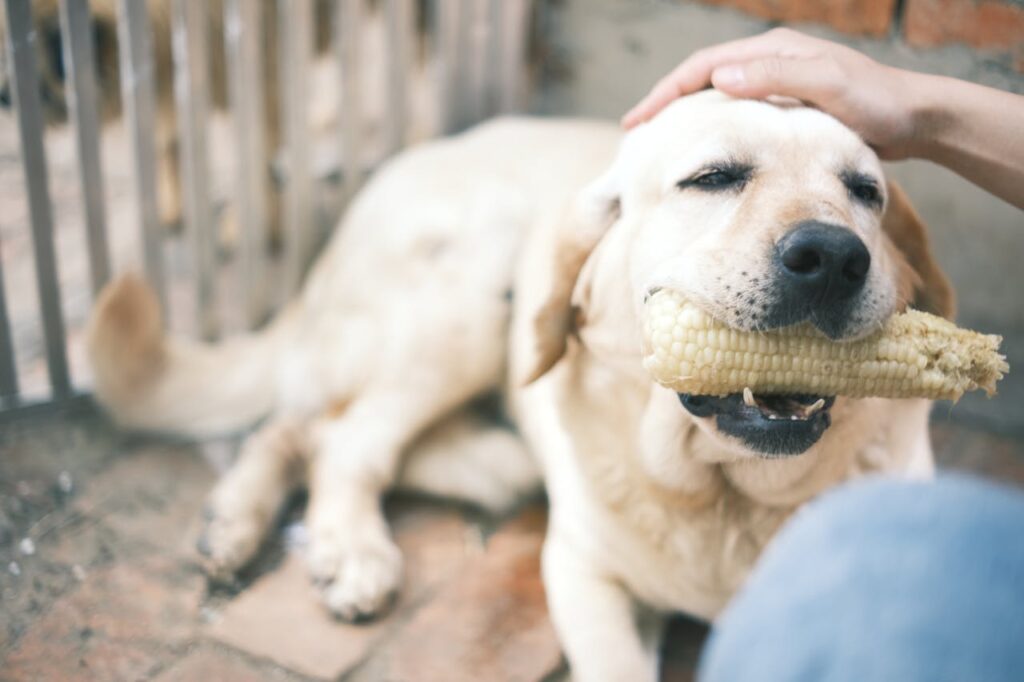Dogs with skin allergies often react to certain foods. Knowing what food to avoid for a dog with skin allergies is essential.
These reactions can cause itching, redness, and discomfort. The most common culprits include:
- Beef: A popular protein that many dogs can’t tolerate.
- Chicken: Another frequent allergen found in many dog foods.
- Dairy: Milk, cheese, and other dairy products can trigger skin issues.
- Grains: Wheat and corn are common in dog food but can lead to allergies.
- Soy: Often used as a filler, soy can irritate sensitive dogs.
- Eggs: Some dogs react poorly to egg proteins.
If your dog shows signs of an allergic reaction, check their food. Avoid these ingredients and switch to hypoallergenic options.
Recognizing these allergens is the first step to healthier skin for your furry friend.

Artificial Additives and Preservatives
When considering what food to avoid for a dog with skin allergies, artificial additives and preservatives should be on your list.
These chemicals can worsen allergic reactions and irritate your dog’s skin. Common additives to avoid include:
- BHA (Butylated Hydroxyanisole)
- BHT (Butylated HydroxyToluene)
- Ethoxyquin
These chemicals are often used to preserve food and enhance flavor, but they can trigger skin problems.
Instead, look for natural preservatives like Vitamin E (mixed tocopherols). Choosing food with minimal artificial ingredients helps keep your dog’s skin healthy and irritation-free. Always read labels carefully to avoid these harmful additives.
High-Fat Foods
Knowing what food to avoid for a dog with skin allergies includes keeping an eye on fat content.
High-fat foods can upset your dog’s health and make skin problems worse. Excess fats may lead to inflammation, which aggravates allergies.
Some examples of fatty foods to avoid are:
- Greasy meats like bacon or sausage.
- Foods cooked with heavy oils.
- Fat trimmings from human meals.
Instead, choose dog food with healthy fats like omega-3 and omega-6 in balanced amounts. These support skin health and reduce inflammation.
Avoiding high-fat options helps keep your dog’s allergies under control.

Gluten and Grains
If you’re wondering what food to avoid for a dog with skin allergies, grains and gluten should be on your radar.
Many dogs have trouble digesting wheat, barley, and corn. These ingredients can trigger allergic reactions, leading to itchy skin and discomfort.
Some common grain-based foods to avoid include:
- Dog foods with wheat as a main ingredient.
- Treats made with cornmeal.
- Snacks containing barley or rye.
Switch to grain-free options or foods with alternative carbohydrates like sweet potatoes or quinoa.
These are easier on your dog’s stomach and less likely to cause skin issues. Always check ingredient lists to avoid hidden grains that may worsen allergies.
Specific Ingredients to Watch For
When figuring out what food to avoid for a dog with skin allergies, watch for specific low-quality ingredients.
Many commercial dog foods use fillers and by-products that can trigger or worsen allergies.
Avoid these ingredients:
- Meat by-products: These are low-quality scraps that lack proper nutrition.
- Artificial flavors: These can irritate your dog’s skin.
- Cheap fillers: Ingredients like corn syrup or starch can cause allergic reactions.
Choose high-quality dog food with real, named proteins like “salmon” or “turkey.” Look for simple recipes with limited ingredients.
Avoiding these problematic items keeps your dog’s skin healthier and itch-free. Always read labels carefully to spot hidden allergens.

Tips for Finding Suitable Food
When deciding what food to avoid for a dog with skin allergies, finding the right diet can feel tricky. But it’s easier with a few simple tips.
- Choose hypoallergenic food: These are specially made for dogs with allergies.
- Try a limited-ingredient diet: Fewer ingredients mean fewer chances of triggering a reaction.
- Avoid common allergens: Skip foods with beef, chicken, dairy, or grains.
- Look for natural options: Foods without artificial additives or preservatives are safer.
Consult your vet to identify your dog’s specific allergens. They can recommend the best food for your pet’s needs.
A little effort in choosing the right diet can make a big difference for your dog’s skin health.
Final Words
Understanding what food to avoid for a dog with skin allergies is key to keeping your furry friend comfortable and healthy.
Common allergens like beef, chicken, dairy, grains, and soy often cause reactions. Additives, preservatives, and low-quality ingredients can make skin issues worse.
Focus on high-quality, limited-ingredient, or hypoallergenic dog foods. Avoid foods with fillers, artificial flavors, and high-fat content. Always check ingredient labels and consult your vet for tailored advice.
By avoiding harmful foods and choosing the right diet, you can help your dog enjoy healthier skin and a happier life.
Similar Post: Why you should not feed your dog human food
FAQs
1. What are the symptoms of food allergies in dogs?
Dogs with food allergies may experience itchy skin, redness, ear infections, or digestive issues like diarrhea and vomiting.
2. Can chicken cause skin allergies in dogs?
Yes, chicken is a common allergen in dogs and can trigger skin issues like itching and inflammation.
3. Is grain-free food better for dogs with allergies?
Grain-free food can help if your dog is allergic to grains like wheat or corn. Always check with your vet before switching diets.
4. How do I identify the right dog food for skin allergies?
Choose hypoallergenic or limited-ingredient diets that exclude common allergens like beef, dairy, and soy.
5. What treats are safe for dogs with food allergies?
Opt for grain-free and single-protein treats made from novel proteins like duck, venison, or fish.
6. Can dairy products worsen skin conditions in dogs?
Yes, dairy is a common allergen and can lead to itching, rashes, or ear infections in sensitive dogs.
7. Are artificial additives harmful to dogs with skin issues?
Yes, additives like BHA, BHT, and artificial colors can worsen allergies and irritate the skin.
8. How long does it take to see improvement after changing food?
It may take 8–12 weeks for your dog’s skin and overall health to improve after switching to an allergy-friendly diet.
9. What vegetables are safe for dogs with skin allergies?
Sweet potatoes, green beans, and carrots are safe options that provide nutrition without triggering allergies.
10. Can home-cooked meals help with dog allergies?
Yes, home-cooked meals allow you to control ingredients and avoid allergens. Consult your vet for balanced recipes.


Pingback: Can Dogs Eat SunChips? Risks and Healthier Alternatives - Tech Promot